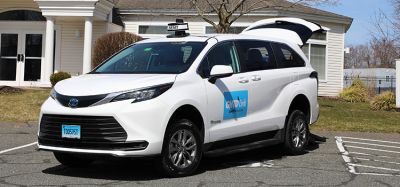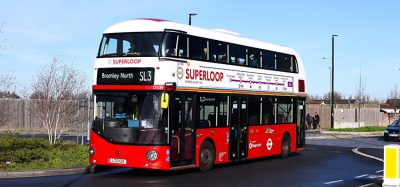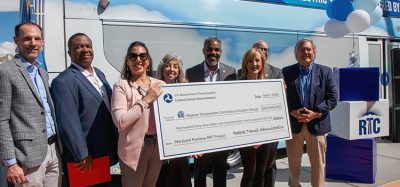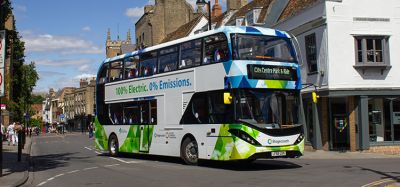TfL achieves largest zero-emission bus fleet in Western Europe
- Like
- Digg
- Del
- Tumblr
- VKontakte
- Buffer
- Love This
- Odnoklassniki
- Meneame
- Blogger
- Amazon
- Yahoo Mail
- Gmail
- AOL
- Newsvine
- HackerNews
- Evernote
- MySpace
- Mail.ru
- Viadeo
- Line
- Comments
- Yummly
- SMS
- Viber
- Telegram
- Subscribe
- Skype
- Facebook Messenger
- Kakao
- LiveJournal
- Yammer
- Edgar
- Fintel
- Mix
- Instapaper
- Copy Link
Posted: 4 August 2023 | Intelligent Transport | No comments yet
London’s red buses are turning green as TfL achieves a significant milestone with over 1,000 zero-emission buses, in line with its goal of a fully zero-emission bus fleet by 2034.
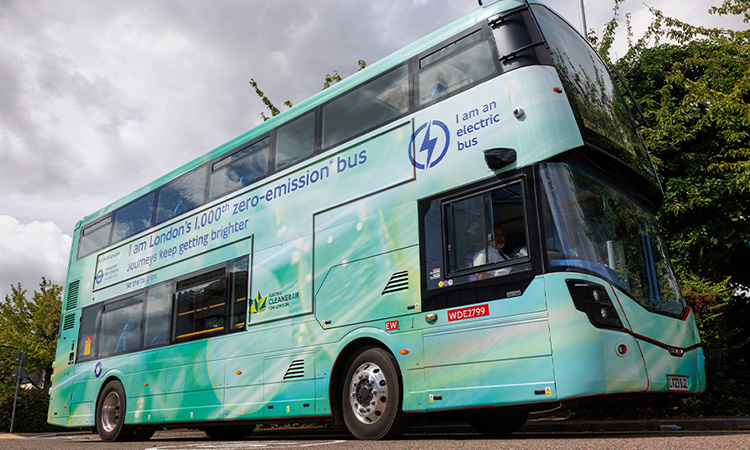

Credit: Transport for London
Transport for London (TfL) has announced that the capital has now passed a major milestone of more than 1,000 zero-emission buses picking up customers on the city’s streets, marking a vital step towards sustainability. London’s iconic red buses are turning green, with more than one in nine buses emitting zero emissions.
TfL aims to completely transition to a zero-emission bus fleet by 2034, a target that could potentially be reached by 2030 with continued governmental support. The evolution is evident, with the number of fully zero-emission bus routes skyrocketing from five to 54 since 2016, accompanied by 15 routes utilising a blend of low and zero-emission buses. The count of zero-emission buses has surged remarkably, leaping by over 3,000% from 30 in 2016 to an impressive 1,000.
The shift to zero-emission buses profoundly impacts London’s air quality and the decarbonisation of its transport system. The endeavour aligns with TfL’s commitment to achieving net zero carbon in the city by 2030, potentially saving approximately 5.5 million tonnes of carbon by 2030 with the help of government funding.
TfL now boasts the largest zero-emission bus fleet in Western Europe, boasting the least CO2 emissions per passenger kilometre compared to global counterparts like New York, Sydney, Paris and Vancouver. Newly added buses feature enhanced customer-centric attributes, encompassing improved flooring, seating, lighting and information provisions, while adhering to top-tier safety standards.
Taskforce launched to drive zero-emission technologies in rural bus services
This strategic investment by TfL also bolsters around 3,000 jobs across the UK, stimulating green economic growth. Furthermore, it aids other local authorities by reducing costs through economies of scale, fostering a broader market for zero-emission buses.
Toxic air remains a critical health concern, contributing to roughly 4,000 premature deaths annually and impacting children’s lung development and causing various illnesses. TfL’s proactive measures, coupled with the impending London-wide Ultra Low Emission Zone (ULEZ) expansion, work cohesively to cleanse London’s air and cultivate a healthier environment for all residents and workers.
The Mayor of London, Sadiq Khan, said: “I’m committed to cleaning up London’s air achieving net-zero carbon by 2030, and that includes delivering a zero-emission bus fleet. The decarbonisation of our bus fleet, the increases and improvements in bus services in outer London, and the new proposed Superloop will help build a better, greener London for all.”
Louise Cheeseman, Director of Buses at TfL, said: “I am very proud that more than 1,000 zero emission buses are now operating on our iconic bus network. It is a significant moment in our journey to achieving net zero by decarbonising our bus fleet and improving air quality across the capital.”
If you liked this, you may also be interested in:
▶ First Bus transforms Norwich depot into UK’s largest electric fleet outside London
Related topics
Air Quality, Alternative Power, Public Transport, Sustainable Urban Transport, Workplace
Related modes
Bus & Coach
Related countries
Australia, France, United Kingdom, United States
Related organisations
Transport for London (TfL), UK Government
Related people
Louise Cheeseman, Sadiq Khan




